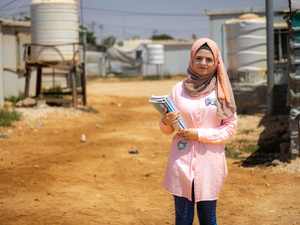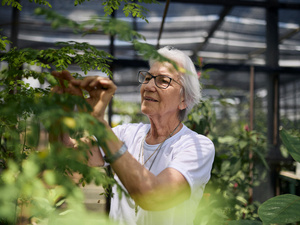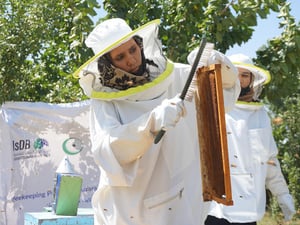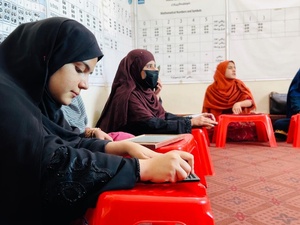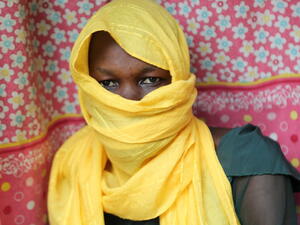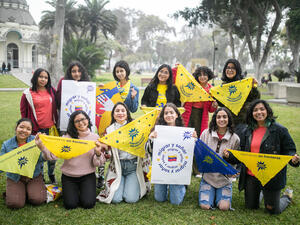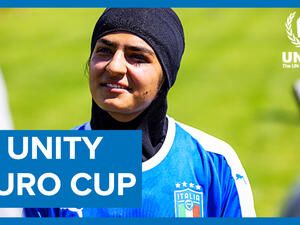International Women's Day: UNHCR helps Colombian victims of sexual violence
International Women's Day: UNHCR helps Colombian victims of sexual violence
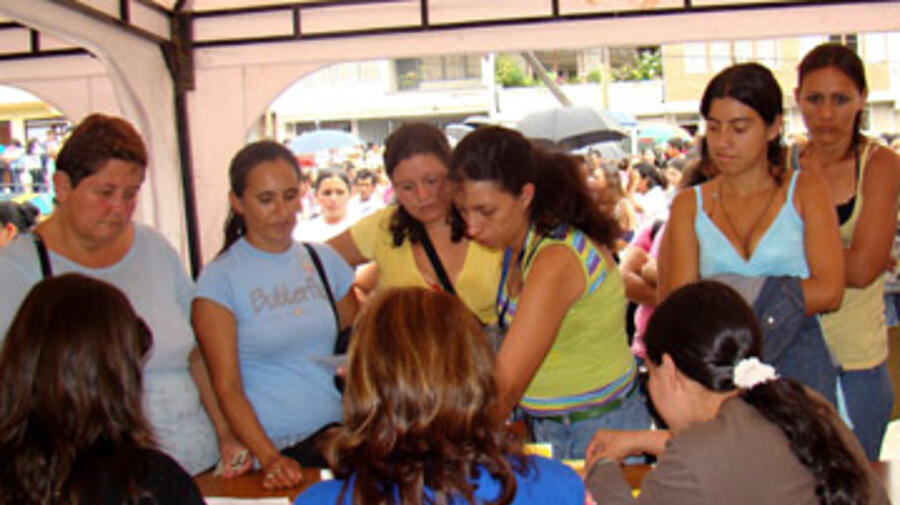
A group of internally displaced Colombian women at a gathering in the city of Ibagué.
IBAGUÉ, Colombia, March 6 (UNHCR) - More than 2.8 million Colombians are registered as internally displaced, with a staggering two thirds of them female. Many are victims of sexual and gender-based violence, which is always more prevalent in times of conflict.
As well as helping some of the victims, the UN agency is working with the government to try and eradicate this scourge, focusing prevention efforts this year in high risk zones around the country.
Elvira,* who fled her home last December with her two teenage daughters and found shelter in the central Colombia city of Ibagué, grew up with violence. An irregular armed group had a strong presence in the area where she lived and many young women were taken away by this militia over the years to provide sexual services. Elvira feared for her daughters, who are aged 15 and 18.
"My husband did not want to leave the farm and we argued about it. He would beat me," Elvira said, adding: "Where I come from, this is what men do." She was concerned about leaving on her own and trying to survive without financial support, but her mind was made up after her 15-year-old niece, who lived nearby, was taken away.
"My husband would not let us take the mule, so we walked," she recalled. After two days, the three reached an army outpost stationed in a village. They thought they were safe, but instead they became direct targets of the irregular armed group after Elvira's eldest daughter formed a romantic relationship with one of the soldiers.
When the troops left, Elvira and her girls started receiving death threats from the irregulars, who declared the family a "military objective" after accusing the 18-year-old daughter of collaborating with the enemy.
It was not an isolated case. In a ruling last year on the protection of the right of displaced women, Colombia's Constitutional Court noted that some women were being stigmatized and persecuted as retaliation for a real or perceived relationship with members of the armed forces.
Other risks identified by the court included sexual violence and abuse as a result of conflict, sexual exploitation and slavery, forced recruitment and persecution of leaders of women's organizations.
"Sexual violence against women is a commonly used tactic within the context of the conflict in Colombia: it is widely, regularly and systematically practised, and remains invisible," the Constitutional Court stated. It asserted that all irregular armed groups in Colombia were guilty of committing sexual abuses, as well as a few members of the armed forces.
As a result, violence against women is one of the leading causes of forced displacement in Colombia, with half of all uprooted women reporting some sort of gender-based violence. Few prevention mechanisms are in place, in part because many of the victims come from rural and conflict-ridden parts of the country with a very limited civil state presence.
"The lack of a civil state presence can have an especially negative impact on women: lack of access to education and health, for example, are known to be serious contributing risk factors and there is often very few mechanisms in place to denounce abuses and violations," said Jean-Nöel Wetterwald, UNHCR's representative in Colombia.
He said that UNHCR was focusing prevention efforts this year in priority zones around the country. The agency is organizing joint documentation campaigns with the National Registry Office to provide women in conflict zones with identity documents. Women with ID are less vulnerable to abuse.
Throughout the country, UNHCR supports the creation and capacity-building of women's rights groups and trains local functionaries on how to address cases of gender-based violence. UNHCR also supports the construction of shelters and boarding-schools in conflict zones, where young girls can study in safety and without fear of abuse.
Reliable data is difficult to gather because of the remoteness of the affected areas and the sensitivity of the subject, but the little that is known portrays a critical situation. According to some estimates, some 37 percent of displaced teenagers are pregnant, while more than half of displaced women are victims of domestic violence and most do not know where to go for protection or who to tell.
* Name changed for protection reasons
By Marie-Hélène Verney in Ibagué, Colombia

